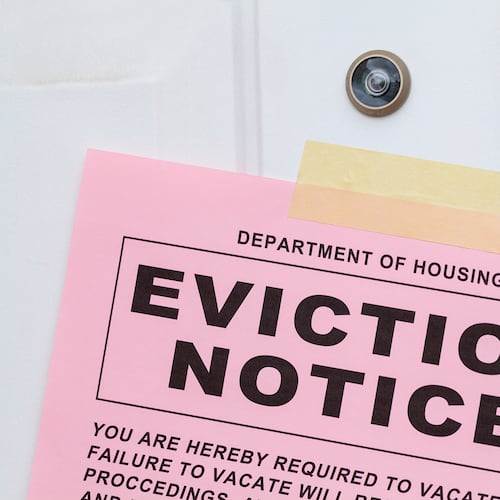Transit expansion proposals on Tuesday appeared to fail to win over a majority of voters in Cobb and Gwinnett counties — again.
Both proposals attracted national attention for their scope and ambition in the face of decades of opposition to mass transit in Atlanta’s suburbs. Supporters had hoped the changing makeup of the two suburban counties, which have recently leaned Democratic, would bode well for the proposed 1% sales taxes that would fund 30 years’ worth of projects.
Unofficial results show the results weren’t really close.
In Gwinnett, the proposal there appeared to fail by just under 29,000 votes. Cobb’s proposal was on track to fare even worse, by just under 100,000 votes.
Credit: HYOSUB SHIN / AJC
Credit: HYOSUB SHIN / AJC
The transit plans in the two counties were similar. Neither included rail or expanded MARTA, which has been the subject of criticism in past efforts. Instead, the plans focused on improving local bus service and adding rapid bus routes. They also proposed countywide microtransit, a mode of transportation that has gained popularity for offering on-demand door-to-door service for a fraction of the cost of Uber or Lyft.
Gwinnett proposed one 26-mile bus rapid transit line and eight arterial rapid transit lines, while Cobb proposed three BRT routes spanning 73 miles and 34 miles of arterial routes. In Cobb, the sales tax would also have paid for transit-supportive projects like sidewalks, trails, pedestrian bridges and bike lanes.
Gwinnett County’s last transit referendum, four years ago, failed by a quarter of a percent of the vote. And with MARTA off the ballot and microtransit on, proponents thought this would be their year.
In Cobb, officials said they tailored their plans based on lessons learned from Gwinnett County’s defeats.
The results left Gwinnett County Chairwoman Nicole Love Hendrickson questioning how to move forward as the suburbs continue growing and traffic worsens.
“I deeply respect the choice of our residents, but the fact remains that we still must create solutions to ease congestion,” she said early Wednesday.
Hendrickson, who won re-election Tuesday, said the county would continue to use property tax revenue to fund its transit system while attempting to leverage federal and state grants. Gwinnett will move forward with executing its transit expansion plan, she said, but it might have to be reprioritized — and it could take a lot longer.
“Given the state of the economy and inflation, I think it could very well be that adding another one-cent sales tax was just too much of a burden to bear for residents that are already hurting economically,” Hendrickson said. “They just didn’t want to add on to the rising cost of services.”
Officials in both counties were worried about a lack of voter engagement on the issue.
Susan Childers, 74, said she has lived in Gwinnett County her whole life but never voted on the transit referendums. Weeks ago, before early voting began, she hadn’t heard about this year’s proposition.
“Because I have a car, I’m not thinking about riding the bus,” she said.
But the Snellville area, where Childers lives, is growing fast. She thought expanding bus routes and microtransit sounded like a good idea.
“A lot of people might like to do it,” she said.
Credit: Jenni Girtman
Credit: Jenni Girtman
There is a long history of transit opposition in the two counties, ever since the 1960s when MARTA was proposed as a way to link the Atlanta metro. Voters’ criticisms have run the gamut, from inflammatory sentiments about the race and class of riders to denouncements of MARTA’s spending and operations.
When MARTA was first proposed, Cobb was the only metro county to reject it. Gwinnett voters initially OK’d its creation but then declined to fund it.
The closest Gwinnett came to approving transit expansion came in 2020, with a scaled-back plan that limited MARTA’s involvement. That effort had bipartisan support but still failed. President Joe Biden received a higher share of votes than the transit referendum.
Keep Reading
The Latest
Featured






